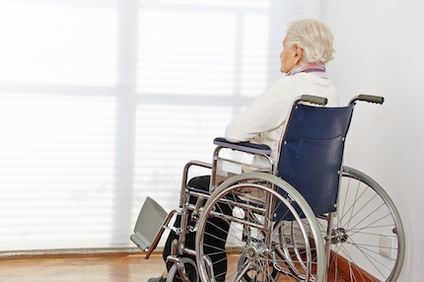Signs Your Elderly Loved One is Being Abused in Their Nursing Home
Did you know that a significant percent of nursing homes have documented violations of elder abuse laws? With more than 2.1 million cases each year in the U.S., elder abuse is a much more common occurrence than you might expect. When your loved one is in a nursing home, it’s important that you keep a watchful eye on every aspect of their health, as elder abuse can involve any combination of:
– Physical abuse
– Psychological abuse
– Financial abuse or theft
– Neglect or abandonment
How can you tell if your elderly loved one is being abused in their nursing home? Here are signs to look out for:
Depression
Transitioning from home to a nursing home often causes at least some degree of initial depression. However, if the onset of depression happens or magnifies well after your loved one has settled into the nursing home, it might be due to substandard conditions or a lack of care.
Injuries
When an elderly person injures themselves or is injured by neglect, they will usually either tell you, or at least have a clear explanation when you point out the injury. Any type of bruise, burn, scratch, pressure mark—or, of course, a more serious injury such as a broken bone—should have an explicable cause. If you notice any of the above, ask your loved one what happened. If they are unable to explain, make sure the facility documents the injury, and consider consulting an attorney.
Bedsores
Bedsores are 100 percent preventable when nursing home staff attends to a patient properly. If your loved one has bedsores or lesions from remaining sedentary in a position for too long, it is almost always a clear sign of neglect—and it’s one that should not be taken lightly. Bedsores are extremely painful and will likely become severely infected as they advance.
Poor Hygiene
Hygiene is a key part of a caregiver’s job, whether it’s simply confirming or physically assisting with your loved one’s daily grooming. Sometimes, a dramatic change in health or a need for surgery might cause a slight drop in hygiene temporarily. But, there should never be an ongoing issue or sharp decline in hygiene at a nursing home.
Weight Loss
Weight loss usually goes hand-in-hand with an overall deterioration of health. That said, if your loved one’s health is generally steady but they seem to be losing weight, the caregiver might not be feeding them appropriately. This includes cases where the patient has physical difficulty eating, and the caregiver does not adequately address the issue or fails to provide a solution.
Dehydration
If your loved one’s skin is cracked, peeling, or changes elasticity, this is often a sign of lack of proper hydration, which can lead to serious medical problems including kidney failure and the need for dialysis.
Unexplained Behavioral Changes
No one knows your loved one better than you do. If you notice any change in their personality or behavior—such as an increase in gift giving, a decrease in energy, or withdrawal from normal activities—do not assume they are just “getting old.” Elder abuse is an extremely broad spectrum that can affect your loved one in many ways, shapes, and forms.
What to Do if You Suspect Elder Abuse
If you suspect even the slightest possibility of elder abuse, call Belgum, Fry & Van Allen so you can be directed to the proper authorities. In California, elder abuse is punishable under Elder Abuse and Dependent Adult Civil Protection Act (EADACPA or Elder Abuse Act), which allows you to seek damages stemming from abuse of your loved one.
Nursing homes must be held accountable for abuse or neglect, not just for your family’s well being, but for future patients as well. Belgum, Fry & Van Allen represent clients in elder abuse and elder neglect cases, including those in which the elder is deceased. Click here to get a free evaluation today.




